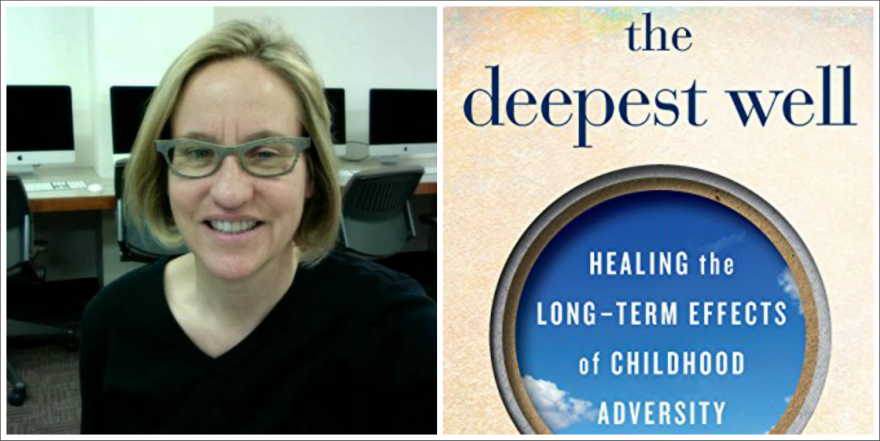I heard an interview with Nadine Burke Harris and immediately bought her book “The Deepest Well.”
Nadine Burke Harris is a doctor in a clinic that serves children from low-income families in San Francisco. She was disturbed when she noticed kids from tough backgrounds had persistent medical problems that were hard to treat. She suspected there was a link between the health problems and traumatic experiences such as losing a parent or becoming homeless.
Poor health outcomes have long been linked to poverty. But Burke Harris found it was an accumulation of traumatic experiences that was most harmful to health–not poverty itself.
In her research, Burke Harris looked at a study of 17,000 people who were insured by Kaiser Permanente. These people were much more likely to be middle class than the children in Burke Harris’ clinic. But the correlation between multiple experiences of trauma in childhood and poor health outcomes was the same. And the health problems continued. As the study participants moved into adulthood, they were at greater risk for heart disease, diabetes and cancer.
“The Deepest Well” gives a 10-question test for readers to determine if their own childhood experiences put their health at risk. They cover verbal and physical abuse at home, sexual abuse, having parents too high or too drunk to give proper care, seeing a parent abused, living with a mentally ill person, having a parent go to prison or parents divorcing.
Burke Harris found that there was a tipping point. After six or more of those traumatic events, a child’s stress reaction was likely to be permanently changed, and that lead to poor physical health outcomes for many children.
Burke Harris found hope, though. The best antidote for cumulative childhood trauma is a nurturing relationship with at least one parent. In “The Deepest Well” she outlines parenting styles that will help childhood trauma survivors thrive anyway.
She also details wellness practices that can help adults who are childhood trauma survivors beat the health odds that are stacked against them. She suggests sleep, regular exercise, healthy eating, meditation, and choosing a supportive partner or spouse.
Although Burke Harris is a medical doctor, “The Deepest Well” is written in an accessible style. There are plenty of anecdotes that show how cumulative childhood trauma plays out over time.
“The Deepest Well” is a must-read for parents and anyone who teaches. I also recommend it to adults who experienced trauma when they were children because it may explain persistent health problems and provide a pathway out.
Reviewer Cindy Simmons is a professor in the college of communications at Penn State University Park.





